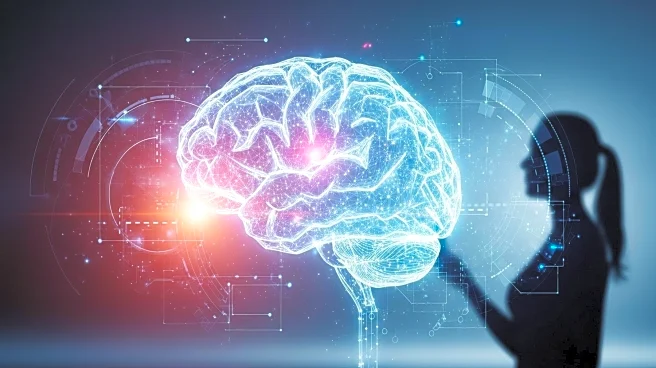What's Happening?
A recent event highlighted the critical role women are playing in the AI revolution within the life sciences sector. The event emphasized the need for women to be pivotal in shaping AI's future in healthcare, addressing the gender imbalance in the field. Currently, women make up only 22% of AI professionals in the UK, raising concerns about gender bias in AI models trained predominantly on male data. Speakers at the event, including Celine Parmentier, EVP and head of global med comms at Real Chemistry, stressed the importance of diverse voices in AI design, testing, and deployment to prevent gaps and biases in healthcare applications.
Why It's Important?
The underrepresentation of women in AI poses significant risks of perpetuating gender bias, particularly in healthcare, where AI systems could influence patient outcomes and treatment protocols. Ensuring diverse representation in AI development is crucial for creating equitable and effective healthcare solutions. The event serves as a call to action for the life sciences industry to prioritize inclusivity and diversity, which could lead to more comprehensive and unbiased AI applications, ultimately benefiting patients and healthcare providers alike.
What's Next?
The life sciences industry is expected to continue its efforts to increase female representation in AI roles, potentially through targeted recruitment and training programs. Stakeholders may also advocate for policies that promote diversity in tech, ensuring that AI systems are developed with input from a wide range of perspectives. This could lead to more balanced and fair AI applications in healthcare, improving patient care and outcomes.
Beyond the Headlines
The push for gender diversity in AI not only addresses immediate biases but also sets a precedent for ethical AI development across industries. As AI becomes more integrated into daily life, the need for diverse voices in its creation becomes increasingly important to ensure that technology serves all segments of society fairly.









